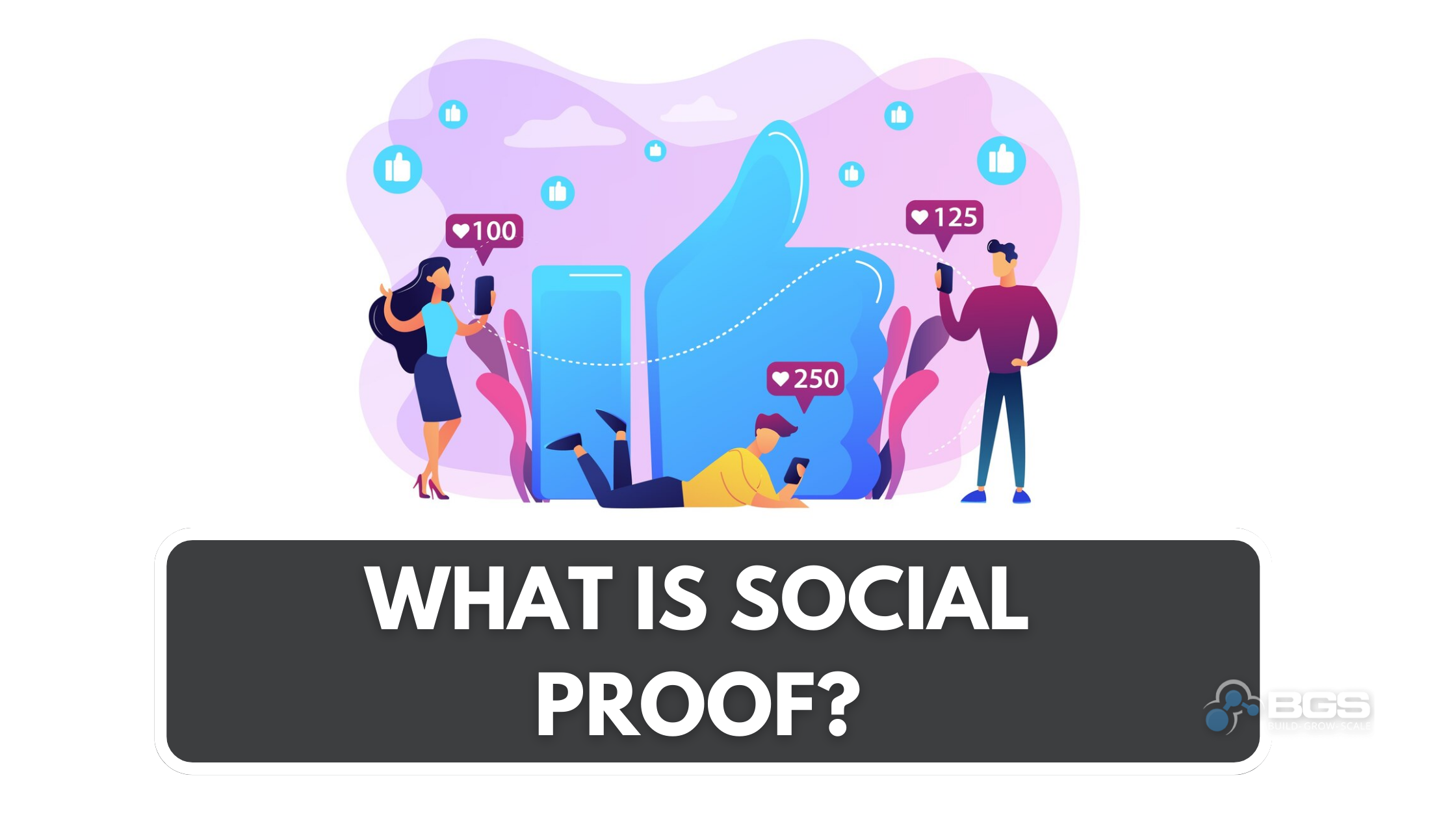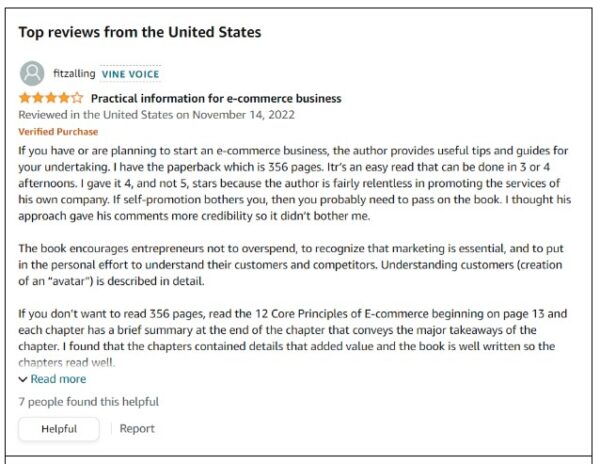What Is Social Proof? How to Use It to Improve Your Business

Dolly Tomas | Oct 06, 2023
Reading Time: 12 minutesSocial proof is a powerful psychological tool that can significantly increase your credibility and sales; but are you using it to boost your business?
Whether you’re running an eCommerce or brick-and-mortar store, understanding and leveraging social proof can be a game-changer. That combined with other optimization best practices like optimizing the checkout form fields and having an optimized call to action that motivates the user to take action can play a huge role in boosting your ecommerce conversion rate. But first, let’s dive into what social proof is, its types, and how to use it to your advantage effectively.
What is social proof?
Social proof, in simple terms, is a psychological phenomenon where people look to the actions of others to decide what they should do. It’s a method of social proofing where one’s actions are influenced by the perceptions of the majority. It sounds pretty straightforward, right? But in reality, it’s a powerful tool, often used in marketing strategies and persuasion tactics.
Let’s delve a bit deeper, shall we? When you’re uncertain about a decision, say buying a product, you’re likely to look at reviews or ask your friends for their opinions. That’s social proof in action. It’s the reassurance that other people have made the same decision and are happy with it.
Now, imagine harnessing that power in your marketing efforts. That’s what social proof marketing is all about – using the power of the crowd to convince potential customers that your product or service is worth investing in. It’s a powerful form of persuasion, where the actions and opinions of others are used to sway the decision-making process.
So, what’s social proof? It’s the psychological underpinning of our tendency to follow the crowd. It’s the force behind our desire to fit in, to make decisions that are validated by others. It’s a tool you can use to drive your marketing strategy, to persuade potential customers, and ultimately, to boost your business.
The Psychology Behind Social Proofing
During the course of your interactions with people and businesses, you’ve likely been influenced by social proof without even realizing it. This psychological phenomenon is based on the idea that people conform to the actions of others under the assumption that those actions represent the correct behavior. The psychology of persuasion of why people behave the way they do when it comes to being persuaded was brought to life by Robert Cialdini when he wrote the six principles of persuasion in his book “Influence: The Psychology of Persuasion” way back in the year 1984.
Let’s delve deeper into the psychology behind social proof. It’s grounded in the principle of social influence, which states that people tend to do what others are doing. This is especially true when they find themselves in situations where they’re unsure of how to behave. You’ve probably experienced this when you’ve chosen a busy restaurant over an empty one, assuming that the busy restaurant must be better because more people are dining there.
Social proof is also linked to the concept of ‘liking’ – we’re more likely to be influenced by people we like. If your favorite celebrity endorses a product, you’re more likely to buy it. This is why testimonials, reviews, and influencer partnerships are so effective in marketing. They leverage the power of social proof to persuade potential customers.
Understanding the psychology behind social proof can significantly improve your business. By showcasing customer testimonials, positive reviews, and social media shout-outs, you can persuade potential customers that your product or service is the right choice. Remember, people are naturally drawn to what others are doing, so use this to your advantage. Harness the power of social proof to drive your business success.
Digital vs. Physical Social Proof
In the realm of social proof, you’ll find a crucial distinction between digital and physical forms, and understanding this can significantly enhance your marketing strategies.
Digital social proof includes online reviews, social media mentions, and influencer endorsements. On the other hand, physical social proof often takes the form of word-of-mouth recommendations, printed testimonials, or public endorsements.
Digital social proof is incredibly powerful in today’s digital age. It’s quickly accessible to anyone with an internet connection, and it can spread virally with ease. Online reviews and testimonials can be seen by thousands, even millions, of potential customers. This vast reach makes digital social proof a compelling tool for enhancing your brand’s visibility and credibility.
However, don’t underestimate the power of physical social proof. It holds a unique value that digital forms can’t replicate – the human touch. A recommendation from a trusted friend or a testimonial from a satisfied customer holds significant weight. It’s perceived as more personal and trustworthy, which can influence purchasing decisions.
So, how can you leverage both digital and physical social proof to maximize your business success? You should encourage customers to leave online reviews, engage with your brand on social media, and share their positive experiences with their networks. Simultaneously, you can foster strong relationships with your customers to fuel word-of-mouth recommendations.
When to use social proof in ecommerce
Before you launch a new product on your ecommerce site and after you’ve gathered some customer reviews, it’s optimal to start using social proof as a persuasive tool. This strategy can create a sense of trust and reliability around your brand, encouraging potential customers to take the leap and make a purchase.
Leverage social proof when you’re introducing new products or services. Potential customers may be hesitant to try something unfamiliar, but seeing positive reviews or testimonials can help reduce their reservations. When you’ve got a high-ticket item, social proof becomes even more crucial. Customers are likely to spend more time deliberating over expensive purchases, so providing them with positive feedback from satisfied customers can help tip the balance in your favor.
Don’t forget to utilize social proof during sales or promotional events. Customers often flock to your site during these periods, and the presence of social proof can make your products appear more appealing. It’s also beneficial to use social proof in retargeting campaigns. If a customer has abandoned their cart, seeing that others have successfully purchased and enjoyed the product can be the nudge they need to complete the transaction.
Lastly, keep in mind that social proof isn’t just for your product pages. Incorporating it into your homepage, about us page, and even checkout process can help reinforce a positive brand image.
6 Types of Social Proof to Use (Examples Provided)
You’ve got several potent types of social proof at your fingertips, ready to boost your business.
Imagine leveraging user-generated content, reviews, and testimonials to engage your audience’s trust.
Or consider using icons and skilled experts to solidify that trust, enhancing your brand’s reach and credibility. Let’s dive in to find out…
User Generated Content (UGC)
User Generated Content (UGC) is a powerful type of social proof that’s critical to your growth strategy. UGC is any form of content, like reviews, testimonials, or social media posts, created by customers rather than by your company. It’s a grassroots way of building trust and authenticity with prospective customers.
Think about it. Who’d you trust more: a brand promoting itself or a real-life customer who’s used the product? UGC’s power lies in its authenticity and relatability. When potential customers see others like them loving your product, they’re more likely to trust you.
Reviews
Leveraging reviews, another form of social proof, can significantly enhance your business’s credibility and attract more customers. They’re influential because they’re perceived as unbiased, genuine feedback from users. For instance, a positive Google review can instantly boost your online reputation, driving more traffic to your site.
But it’s not only about quantity; the quality of reviews matter too. Detailed, thoughtful feedback can do wonders in convincing potential buyers about your product’s value. Negative reviews, although daunting, offer an opportunity for improvement and showing customers you care about their experience.
Encourage customers to leave reviews after a purchase, or even offer incentives for doing so. Remember, people trust people, and a well-placed review can be the decisive factor in a customer’s purchasing decision. Here is an example of a review for an ecommerce book Optimized Ecommerce.
Testimonials
In the realm of social proof, testimonials are a powerful tool you can use for your business, and they come in several different forms. They’re essentially endorsements from satisfied customers, designed to boost your business’s credibility.
Firstly, there’s the classic written testimonial – these are golden nuggets of praise that can be sprinkled across your website.
Then, we’ve video testimonials, which can be even more persuasive as they add a level of authenticity.
Case study testimonials are a more detailed version, where a customer’s story is told from problem to solution thanks to your product or service.
Whether it’s the brief but compelling written testimonial or the detailed case study, they’re all about showcasing real-life success stories to potential customers.
Use them strategically to build trust and prove your value proposition. Here is an example of a social proof testimonial for CXL.
Trust Icons
While you’re looking for ways to boost your business’s credibility, don’t overlook the power of trust icons, another effective form of social proof.
Trust icons are graphic elements that convey a sense of security to your customers. They can be logos of reputable organizations you’re affiliated with, or badges indicating your adherence to industry standards.
For example, an e-commerce site could display icons from payment gateways like PayPal or Visa, signaling a secure transaction environment. Or, a health website might show health and safety certification badges, reassuring visitors of their commitment to wellbeing. Here is an example of Social proof from Salesforce and another one from Clickup.
Skilled Experts
You’ve likely heard the saying, ‘people buy from people they trust’, and one surefire way to earn that trust is by using skilled experts as a form of social proof in your marketing strategies.
When you showcase expert opinions, reviews, or endorsements, you’re legitimizing your business and products.
For instance, a skincare brand can use a dermatologist’s endorsement, or a tech company can feature a review from a renowned IT expert.
Potential customers who respect these experts will likely trust their judgments, making them more inclined to purchase your product.
It’s a powerful marketing tool that greatly enhances your brand’s credibility and influence. A good example is how Nike uses Michael Jordan for their Air Jordan collection.
Quantitative Data
Armed with hard numbers, you’re not only strengthening your business’s credibility but also showcasing a type of social proof that can influence potential customers – quantitative data. This data, often presented in charts, infographics or raw statistics, provides tangible evidence of your business’s achievements or customer satisfaction.
For instance, if you’ve sold over a million products or if 98% of your clients are happy with your services, flaunt these figures. It’s persuasive because these numbers aren’t just claims; they’re proven facts. They give prospective customers a clear, quantifiable reason to trust your business.
Don’t underestimate the impact of strong quantitative data. It’s an effective way to convert skeptics into believers, and more importantly, into loyal customers. A good example is the descriptive Apple watch image that gives user more info in regards to how it’s environmental friendly.
Importance of using social proof on your ecommerce store
In running your ecommerce store, it’s crucial to understand the importance of using social proof to boost your sales and reputation. Social proof is a powerful tool that, when used correctly, can significantly enhance your online presence, build trust with your customers, and drive conversion rates.
Think about it – customers are more likely to purchase a product if they see that others have had a positive experience with it. It’s human nature to trust the judgment of the crowd. By showcasing testimonials, reviews, or the number of satisfied customers, you’re leveraging this instinct to your advantage.
In the competitive world of ecommerce, trust is the currency that drives sales. A potential customer can’t touch or try your products before buying, so they rely on others’ experiences to inform their decisions. That’s where social proof comes in. It provides a tangible, trustworthy endorsement of your products, making customers feel more confident about their purchases.
Moreover, social proof isn’t just about boosting sales; it’s also about building your brand’s reputation. It shows that you’re transparent and that you value your customers’ opinions. This not only fosters loyalty but also turns your customers into advocates for your brand.
How to determine the social proof that works best for your ecommerce business
While it’s clear that social proof can be a game-changer for your ecommerce business, determining the type of social proof that’ll work best for you is where it can get tricky. You’ve got a variety of forms to choose from: customer testimonials, ratings and reviews, influencer endorsements, social media shares, and even case studies. The challenge is to identify which one will resonate most with your target audience and drive them to make a purchase.
Start by understanding your customer base. What motivates them? What do they value? If they’re highly influenced by experts in your industry, then influencer endorsements might be the way to go. If they rely heavily on the opinions of their peers, customer testimonials and ratings could be your best bet.
Next, consider the nature of your product. Some products lend themselves well to visual proof, like before-and-after photos or videos of the product in use. If that’s the case for you, then social media shares or user-generated content might be your best form of social proof.
Finally, test and measure. Implement one type of social proof at a time and track its impact on your sales. If it’s not having the desired effect, don’t be afraid to switch gears and try another form. Remember, what works for one business may not work for another, so it’s crucial to find the social proof that’s most effective for yours.
With time and careful analysis, you’ll discover the type of social proof that’ll propel your ecommerce business to new heights.
3 Different ways of gathering social proof from your customers
You can harness the power of social proof in numerous ways.
Start by asking your customers for feedback through surveys and sweeten the deal by offering incentives for leaving reviews.
Don’t forget to actively engage with mentions and shares on social media, turning your customers into advocates for your brand. Let’s dive into details..
Request feedback through surveys
Before launching a new product or service, it’s critical that you conduct surveys to gather valuable feedback and social proof from your existing customers. This not only provides insight into their preferences and potential improvements but also helps establish trust with potential customers.
Surveys are a powerful tool for collecting social proof because they directly involve your customers in the business process. Their responses provide real, tangible evidence of their experiences with your brand. You can leverage this feedback to prove the value of your product or service to potential customers, persuading them to choose your business over competitors.
Provide incentives for leaving reviews
To gather more social proof, consider offering incentives for leaving reviews. This not only motivates your customers but also gives you valuable feedback. Incentives can range from discounts on future purchases, loyalty points, or even branded merchandise. However, it’s vital to ensure that your approach doesn’t appear as buying positive reviews as it could damage your brand’s reputation. You’re simply encouraging feedback, with the incentive acting as a thank you for their time.
Moreover, don’t ignore negative reviews. They’re a goldmine of insight into where you can improve. Respond promptly, show you value their opinion, and, crucially, take action. This transparent handling of feedback can turn a dissatisfied customer into a loyal one, providing an authentic form of social proof.
Engaging With Social Media Mentions and Shares
Interestingly, when you’re actively engaging with social media mentions and shares, you’re collecting a valuable form of social proof from your customers. These interactions can be testimonials, reviews, or simply positive comments about your brand. It’s crucial to not only monitor but also engage with these mentions: respond, thank, or even share them.
This not only validates the customer’s opinion but also enhances your brand’s authenticity. Moreover, user-generated content can be a powerful marketing tool. By leveraging this content, you’re subtly persuading potential customers that people trust and value your product or service.
Measuring the Success of Your Social Proof
You’ll need to regularly monitor and analyze key performance indicators (KPIs) to measure the success of your social proof effectively. These KPIs could include website traffic, leads generated, conversion rate, or social media engagement metrics. It’s important to remember that the ultimate goal of your social proof isn’t just to create a buzz on social media, but to drive actionable results that positively impact your bottom line.
Let’s dig deeper into how these KPIs connect with your social proof efforts. When you showcase customer testimonials or reviews, you’re potentially influencing your website traffic. You can track this by monitoring the number of unique visitors, page views, or duration of visits. If there’s an increase in these metrics, it’s likely that your social proof is resonating with your audience.
Similarly, when your social proof leads to an increase in leads or conversions, you’re on the right track. You might see this through an uptick in form submissions, newsletter sign-ups, or product purchases. This indicates that your social proof isn’t just attracting interest but also encouraging action.
Finally, consider your social media engagement. Are more people liking, commenting, or sharing your posts? If so, your social proof is successfully fostering a sense of community and trust among your audience.
Conclusion
In conclusion, you’ve learned what social proof is and how it can boost your business, but remember, it’s not a one-size-fits-all solution. Its effectiveness is heavily dependent on your business’s unique situation, your target audience’s behavior, and the nature of your products or services. Analyzing and understanding these aspects is a crucial step before implementing social proof strategies.
You’ve seen how testimonials, reviews, endorsements, and case studies can serve as powerful forms of social proof, persuading potential customers that your business is trustworthy and reliable. They provide real-world evidence of your product’s value, reducing uncertainty and facilitating decision-making. However, you must ensure that these testimonials and endorsements are honest and authentic. Remember, today’s consumers are wise to marketing tactics and value authenticity above all.
Moreover, you’ve learned the importance of carefully measuring the success of your social proof. This involves tracking key metrics like conversion rates, customer engagement, and customer satisfaction scores. Without this step, you won’t know whether your social proof strategies are working or need adjusting.
In the end, it’s all about building trust and establishing credibility. Social proof is merely a tool to help you achieve this, not a magic bullet. It requires consistent effort and careful management to make it work effectively. But when done right, social proof can significantly enhance your business’s reputation and encourage more customers to choose you over your competitors.
Frequently Asked Questions:
Social proof is a psychological phenomenon where people look to the actions of others to decide what they should do. It’s a method of social proofing where one’s actions are influenced by the perceptions of the majority.
A user review or testimonial is a good example of a social proof.
You can provide social proof through user generated content, user reviews, trust icons, using skilled experts or using qualitative data.



Table of Contents
What is social proof?The Psychology Behind Social ProofingDigital vs. Physical Social ProofWhen to use social proof in ecommerce6 Types of Social Proof to Use (Examples Provided)User Generated Content (UGC)ReviewsTestimonialsTrust IconsSkilled ExpertsQuantitative DataImportance of using social proof on your ecommerce storeHow to determine the social proof that works best for your ecommerce business3 Different ways of gathering social proof from your customersRequest feedback through surveysProvide incentives for leaving reviewsEngaging With Social Media Mentions and SharesMeasuring the Success of Your Social ProofConclusionFrequently Asked Questions:Table of ContentsAbout the authorLeave a Comment Cancel ReplyAbout the author
Dolly Tomas
Dolly, Revenue Optimization Expert at Build Grow Scale! With a wealth of experience in eCommerce and an extensive background in Customer Service as an Operations Manager, Team Leader, and Project Manager, she's got the secret sauce to boost your bottom line. Armed with a Bachelor's degree in Electronics and Communications Engineering, she's a master of numbers and problem-solving. Balancing her professional achievements with her cherished role as a devoted mother to two cute kiddos, Dolly shows her unwavering commitment to driving revenue growth and her ability to navigate complex challenges make her an invaluable asset to any organization.








